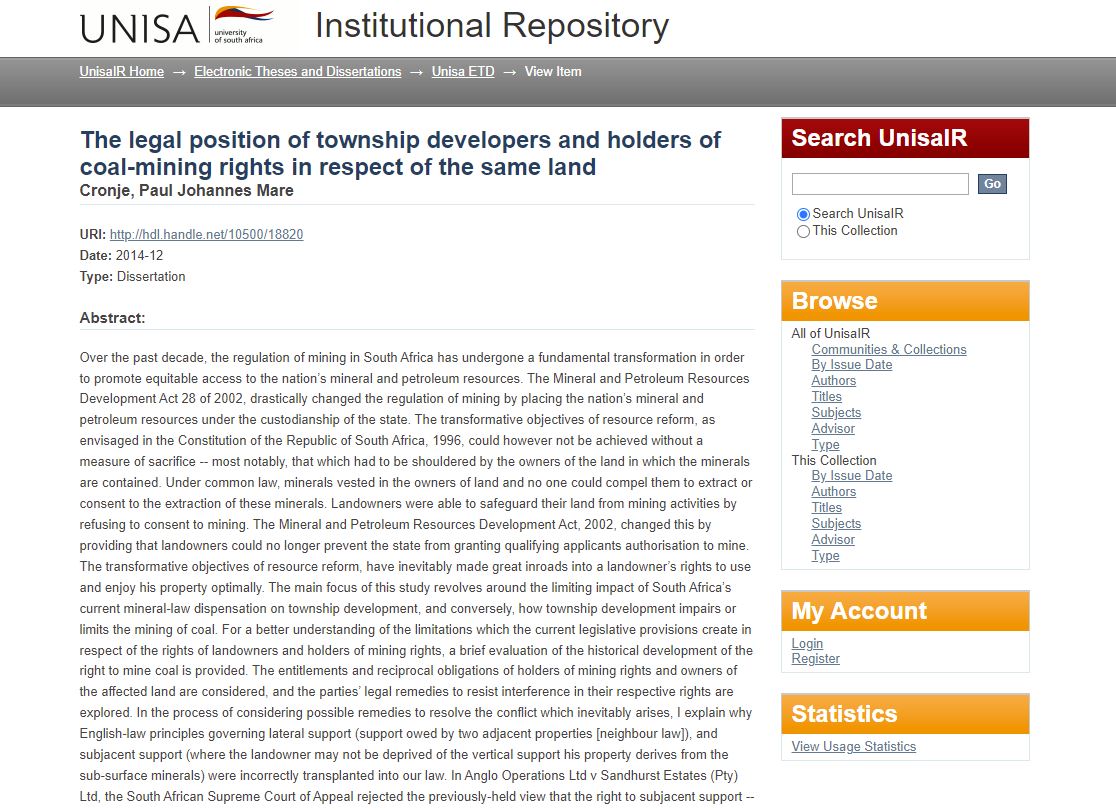The legal position of township developers and holders of coal-mining rights in respect of the same land

01 December 2014
University Of South Africa
English
Dissertation
Municipal Capability & Partnership Programme
Africa, Asia, Australia, Europe, North America
Over the past decade, the regulation of mining in South Africa has undergone a fundamental transformation to promote equitable access to the nation’s mineral and petroleum resources. The Mineral and Petroleum Resources Development Act 28 of 2002 drastically changed the regulation of mining by placing the nation’s mineral and petroleum resources under the custodianship of the state. The transformative objectives of resource reform, as envisaged in the Constitution of the Republic of South Africa, 1996, could however not be achieved without a measure of sacrifice - most notably, that which had to be shouldered by the owners of the land in which the minerals are contained. Under common law, minerals vested in the owners of land and no one could compel them to extract or consent to the extraction of these minerals. Landowners were able to safeguard their land from mining activities by refusing to consent to mining.
The Mineral and Petroleum Resources Development Act, 2002, changed this by providing that landowners could no longer prevent the state from granting qualifying applicants authorisation to mine. The transformative objectives of resource reform have inevitably had great impact on a landowner’s rights to use and enjoy their property optimally.
The main focus of this study revolves around the limiting impact of South Africa’s current mineral-law dispensation on township development and, conversely, how township development impairs or limits the mining of coal. For a better understanding of the limitations which the current legislative provisions create in respect of the rights of landowners and holders of mining rights, a brief evaluation of the historical development of the right to mine coal is provided.
This resource is part of the Mining Towns Collection kindly sponsored by the Municipal Capability and Partnership Programme. Abstract based on source.


Comments